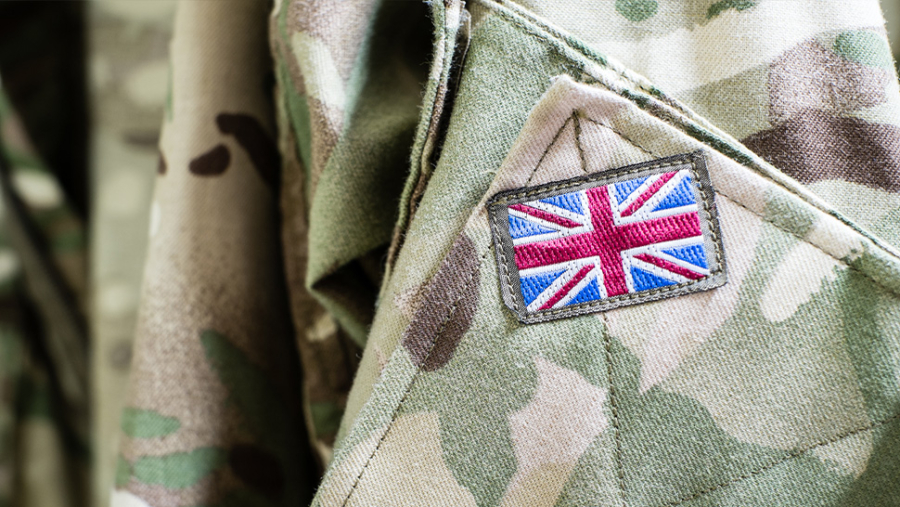

Armed Forces Day on 25 June 2022 will represent the culmination of a week of celebration of our armed forces across Armed Forces Week. Harrison Clark Rickerbys is encouraging employers to show their support by signing the Armed Forces Covenant and employing members of the armed forces community in their businesses.
HCR signed the Armed Forces Covenant in 2014. In 2019 we were awarded the Employer Recognition Scheme Gold Award by the MOD for our support and advocacy for all members of the armed forces community.
But what is it all about? Why would businesses and employers want to sign the covenant? What are the business benefits of employing members of the armed forces community? Most importantly, what does the covenant mean for those who serve and their families?
What is the covenant?
Put simply, the covenant is a promise from the nation ensuring that those who serve or have served in the armed forces and their families are treated fairly. By signing the covenant, a business demonstrates its commitment to supporting the community through recognising the value that serving personnel, veterans, adult cadet force volunteers and military families contribute to our businesses and our communities.
Why is it important?
UK service personnel number almost 200,000 as of January 2022 and with the ever-evolving threats to UK interests, the way in which the armed forces operate is ever-evolving too and the utilisation of reservists in particular is set to increase in coming years.
There are also increasing numbers leaving regular service (which increased 11.5% on the previous year in the year to December 2021). It all means supporting our armed forces community as employers remains as important as it has ever been.
In the last two years, as part of Operation Rescript (the armed forces’ response to the Covid-19 pandemic), regular and reserve personnel have supported the ambulance service, served in the majority of the UK’s intensive care units, been called up to undertake emergency Covid-19 testing at UK ports and assisted with the roll out of the UK’s vaccination programme.
Looking ahead to the Commonwealth Games being held in Birmingham in August 2022, the UK’s armed forces will support the event by assisting the West Midlands’ Police. They will provide security, with 50% of the support being provided by reserves, demonstrating once again the diverse skills, adaptability and operational effectiveness of those in our armed forces.
What does signing the covenant mean for businesses and employers?
What a business does to demonstrate its commitment under the covenant is a commercial decision but what is important is to actually do something! It is not just about signing; it is a commitment. From a business perspective, signing the covenant is a commitment to ensuring that no member of the armed forces community suffers a commercial disadvantage because of their service.
To suggest just a few examples, businesses can:
- Offer guaranteed interviews to veterans and other members of the armed forces community, such as military spouses, who meet the minimum selection criteria.
- Recognise equivalent military skills and qualifications when interviewing for new positions.
- Focus recruitment efforts on the armed forces community by working with the Career Transition Partnership and Forces Families Jobs and by advertising through ‘service-friendly’ recruitment agencies, military charities and publications.
- Accommodate reservist training commitments by offering additional annual leave and other support.
- Accommodate the mobilisation of reservists, if they are required to deploy.
- Commit to finding alternative employment within the business in another location or on a remote working basis if an employee is forced to relocate owing to a partner or family member’s military service.
- Look sympathetically on requests for holidays before, during or after a partner or family member’s overseas deployment.
- Offer discounts on goods and services to members of the armed forces community – particularly in relation to services that are relevant, such as legal services, insurance and financial advice.
Why would businesses do it?
The business benefits of supporting and employing members of the armed forces community are numerous.
Former service personnel have a raft of transferable skills acquired through their military service. The armed forces expect high standards of professionalism, behaviour, self-discipline along with selfless commitment and expert ability in their chosen field.
Alongside this, the standard of leadership and management training given to military personnel across all three services is second to none.
Military families are adaptable, resourceful and resilient. They have to forge relationships in the most unlikely circumstances, often in fast-changing environments; this often results in great people skills, determination, commitment and self-confidence.
And, let’s not forget, a great many veterans and service spouses are highly qualified to boot.
The legal bit
The armed forces community does not have a legal definition, nor does being a member of the armed forces community confer any legal rights – except, that is, for reservists.
As such, the obligations on employers towards most members of the armed forces community, and veterans in particular, are the same as those which are owed to any other employee.
With regards to reservists, in the absence of a contractual obligation to do so, they are not under any obligation to tell their employer that they are a member of the reserve forces.
Employers are under no obligation to allow an employee time off (paid or otherwise) for reservist training or mobilisation. However, under the Reserve Forces (Safeguard of Employment) Act 1985, employers do have an obligation to reinstate any employee who was employed in the four weeks prior to their mobilisation. These terms should be no less favourable than those which would have applied had the employee not been mobilised, where it is reasonable to do so. If not, employers must offer the most favourable terms practicable. Either way, reinstatement is a must, for a minimum protected period, at least.
The period of mobilisation does not count for the purpose of calculating the employee’s continuous service under the Employment Rights Act 1996. However, the mobilisation period does not break continuous service and instead simply ‘stops the clock’.
Finally, section 48 of the Defence Reform Act 2014 removed the two year qualifying period for unfair dismissal claims where the reason (or, if more than one, the principal reason) for the dismissal is, or is connected with, the employee’s membership of a reserve force.
In our experience, employers would be well advised to sign the covenant and, more importantly, to follow through and deliver on the commitments they make having done so!
It is only by taking action under the covenant, not simply by signing it, that we can ensure that a mutually beneficial relationship between the armed forces community and commerce can be created.
With veterans, serving personnel and military spouses amongst our ranks and our client base, we know first-hand that employing members of the armed forces community and delivering on your commitments under the covenant makes business sense.










